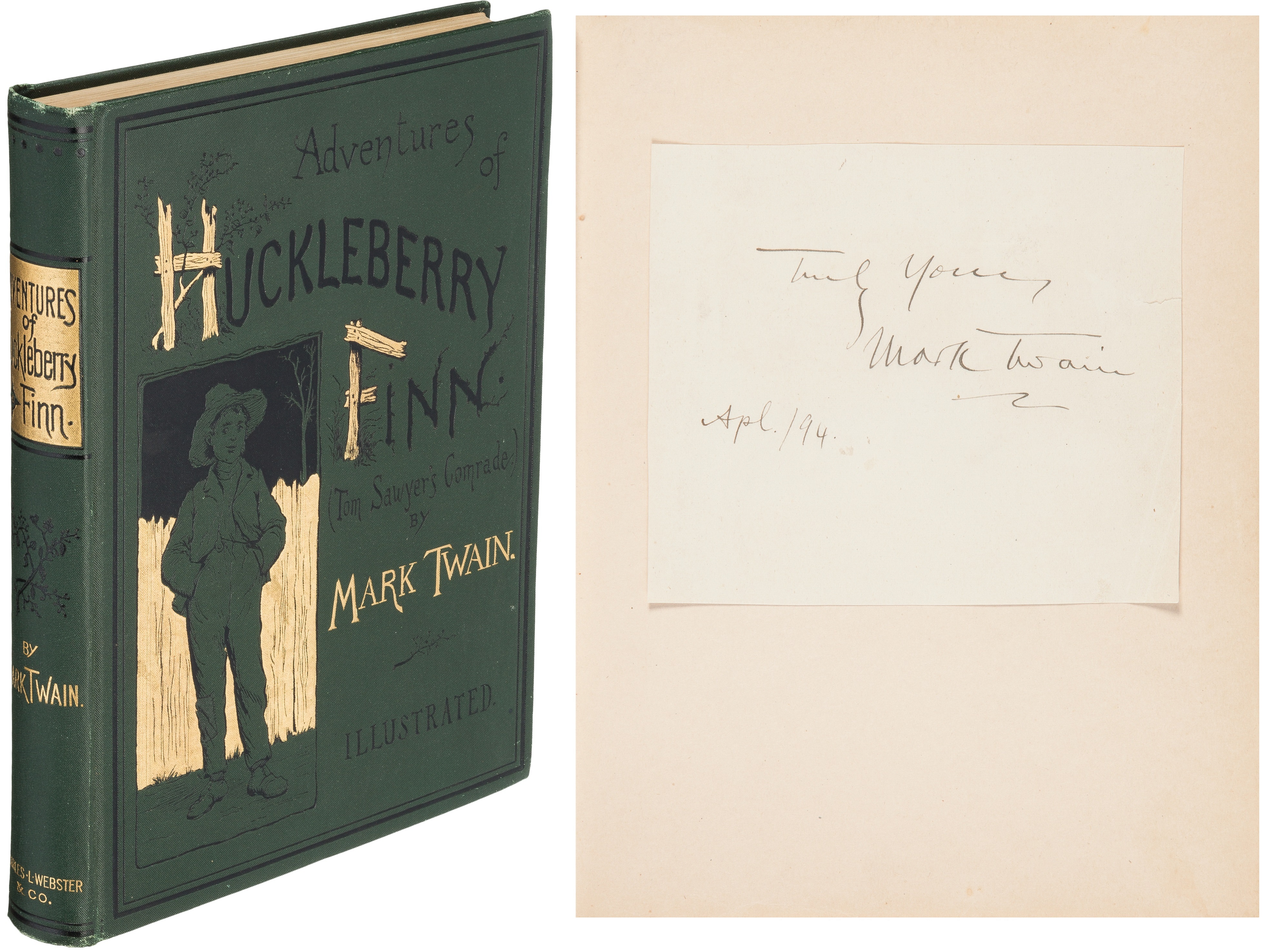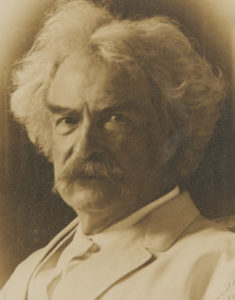
By Jim O’Neal
Here’s a good literary rule of thumb. Any book that someone has seen fit to ban has got to be worth reading. And when a book has been banned for so long and so often and for so many reasons – as has The Adventures of Huckleberry Finn – that’s as compellingly an endorsement as you can hope for.
If anything, Huckleberry Finn has become even more disturbing since its first appearance in 1885. It’s a book that, even when you reread it, is never what you expect – by turns raw, sweet, funny, deeply principled and deliberately shocking.

It has been a lightning rod for the squeamish and for naysayers and prigs of every stripe. Huck Finn was a victim of political correctness long before there was such an imprecise, overused and contentious term. The indictment is by now tiresomely familiar and of some of the charges, at least, plainly guilty. Yes, it uses the “n” word – 215 times to be accurate. People used the word back then and still do today. However, who is allowed to seems to be fungible and the rules enforced for maximum social effect. And Huck – not to mention most of the book’s other characters, black and white – does engage in what we would call racist thinking.
But Huck is not Mark Twain, remember, and early on we discover he has a lot to learn. The story of Huckleberry Finn is, in part, the story of Huck’s education and he is taught by none other than Jim, the runaway slave who is in fact the book’s wisest and most humane character. Set at a time when America was still riven and corrupted by slavery, Huckleberry Finn is a depiction of racism at its most virulent, but it is itself among the most anti-racist novels ever written.
The charge of racism is so specious that it invites us to wonder if some other agenda isn’t at work in the minds of those who raise it. And the same is true of those 19th century moralists like librarians, town fathers and custodians of the public weal who originally objected on grounds of vulgarity and sacrilegiousness. What really upsets people about Huck Finn is that it is so deeply skeptical – subversive even – of received wisdom and official pieties of every sort. It breaks all the rules and does so from its first sentence: “You don’t know about me, without you have read a book by the name of The Adventures of Tom Sawyer, but that ain’t no matter.”
There had never been a sentence like that in American literature before. It is vulgar, in the way that everyday speech is vulgar, and it introduces us not to the familiar narrator of 19th-century fiction, with measured cadences and worldly wisdom, but to a 14-year-old boy, a wiseass who takes nothing on faith, especially not what he’s been told by his elders. It’s a voice so authentically American that it’s startling that we never heard it in books until then. In an almost embarrassing way, it reveals as phony so much written until then.
Ernest Hemingway famously said of Huckleberry Finn that all American literature comes from it and that “there was nothing before” – which is a stretch, but not by much. What is certainly true is that all American comedy comes from Huck Finn and it established in an instant the two enduring hallmarks of our national sense of humor: a deadpan delivery and a take-no-prisoners attitude. We get taken on a tour down Twain’s beloved Mississippi through an America in the process of becoming a country. Filled with an incomparable gallery of rogues, swindlers and hypocrites, it’s Twain’s take on this nascent country … withering, but exact.
I suspect nothing would please Twain more – or surprise him less – to learn that his book still has the power to both amuse and make us wince … things that are in short supply as we hurry from one outrage to another by people that will probably always be angry, about something.
 Intelligent Collector blogger JIM O’NEAL is an avid collector and history buff. He is president and CEO of Frito-Lay International [retired] and earlier served as chair and CEO of PepsiCo Restaurants International [KFC Pizza Hut and Taco Bell].
Intelligent Collector blogger JIM O’NEAL is an avid collector and history buff. He is president and CEO of Frito-Lay International [retired] and earlier served as chair and CEO of PepsiCo Restaurants International [KFC Pizza Hut and Taco Bell].
